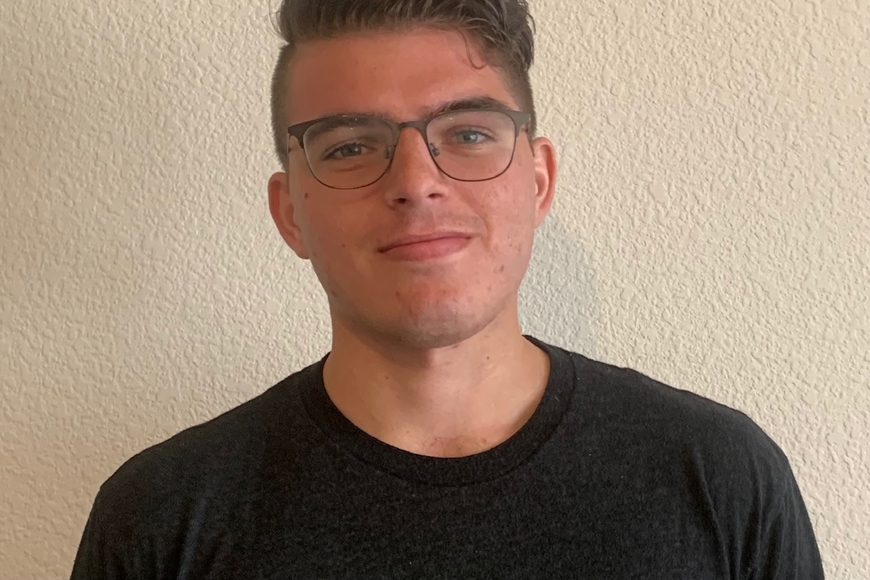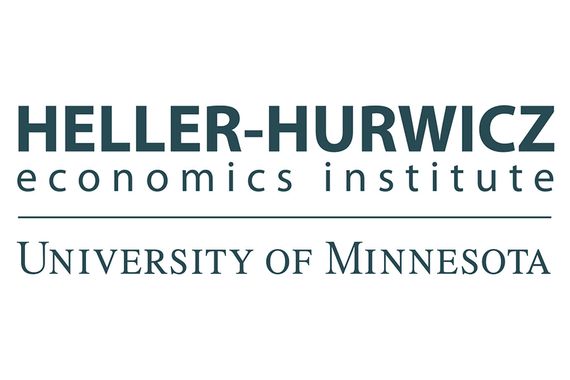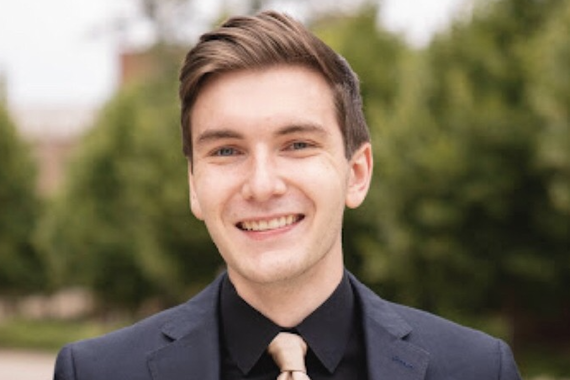From Engineering to Economics, Minnesota to MIT
During high school, Jackson Mejia enjoyed being on his school’s experimental vehicle team, helping to design and build a full-size electric car and then drive it in international competitions. So it was logical that he would start college as an electrical engineering major—but that quickly changed.
“I was reading economics stuff on the side,” Jackson recalls. “I realized that if I’m interested enough in something to study it on the side, rather than study for my courses, I should actually just do that.”
After that important realization, Jackson shifted gears, changing his major and diving into opportunities to expand his knowledge in the economics field. While working on a Multicultural Summer Research Opportunity, he met Brian Albrecht, a graduate student in economics. Before long, Jackson’s interest in economics research was cemented.
As a junior Jackson applied to the Heller-Hurwicz undergraduate research program and was among the dozen students selected and paired with faculty mentors. He joined the research team of Professors Ellen McGrattan and Anmol Bhandari, working with both graduate students and undergraduate peers.
Hands-on research experience
The HHEI Undergraduate Research Program is designed to offer undergraduate economics majors the opportunity to work directly with world-renowned faculty. Each year, a cohort of 12–15 students participate in the competitive program. This hands-on research experience helps students build technical skills and learn research processes and methods. The program has a strong track record of placing students in research jobs - with government agencies and in the Federal Reserve system, among others—as well as graduate programs.
Along with the McGrattan-Bhandari team, Jackson worked on projects related to the broad impacts of tax policy reform. The overall project focuses on business tax policy given that a substantial part of business assets are intangible in nature and therefore not included on tax forms or internal financial statements. Unlike investments in plant and equipment, investment in these intangible assets affords greater opportunities to misreport incomes and valuations. This is an important issue for the IRS given the size of the tax gap, the amount of taxes owed but not paid in a timely or voluntary manner.
Jackson’s problem-solving abilities and creative thinking quickly became evident. Instead of trying to write code on the spot, in team meetings as ideas and questions were discussed, Jackson was able to find a way to automate it. “I didn’t know how to do it at all, but it took me two weeks or so to build an app.” The end result is an app for analyzing microdata from the SEC, visualizing time series data from more than 30 years of filings by C-corporations.
For his part, Jackson’s particular interest is taxation of corporate incomes. “Jackson has done so much background research on the topic that I asked him to give a lecture in my Advanced Topics in Macroeconomics class for PhD students,” McGrattan shared. “This is the first time I have ever asked an undergraduate student to give a lecture in one of my classes. He reviewed the history and major tax reforms of corporate taxation over the past 100 years and discussed aspects of policy that have changed over time. In hindsight, I wish I had recorded the lecture.”
What’s next
Just two months into his senior year, Jackson was recruited by consulting firm Accenture. After graduating in May 2020, he joined the firm as an analyst. He continued to work with the McGrattan-Bhandari team on a volunteer basis, meeting with the team regularly. Professors McGrattan and Bhandari encouraged him to apply to PhD programs to pursue his passion for economic research.
In the words of Professor Ellen McGrattan, “Jackson is the kind of once-in-twenty-years student that should be in a top graduate program.”
Last month, Jackson enrolled at the Massachusetts Institute of Technology, pursuing a PhD in economics. MIT’s economics program is consistently ranked the best in the world. In addition, Jackson received a highly-competitive fellowship from the National Science Foundation which will provide three years of funding while he pursues his doctorate.
Looking over his personal website and CV, it’s clear that Jackson really did make the most of his time on campus. He brings a wealth of research experience to MIT, especially remarkable for a recent bachelor’s graduate. Yet Jackson is quick to express his thanks to his mentors and undergrad research opportunities. “None of this would have been possible without HHEI, and Ellen and Anmol. I'm very grateful for that.”



